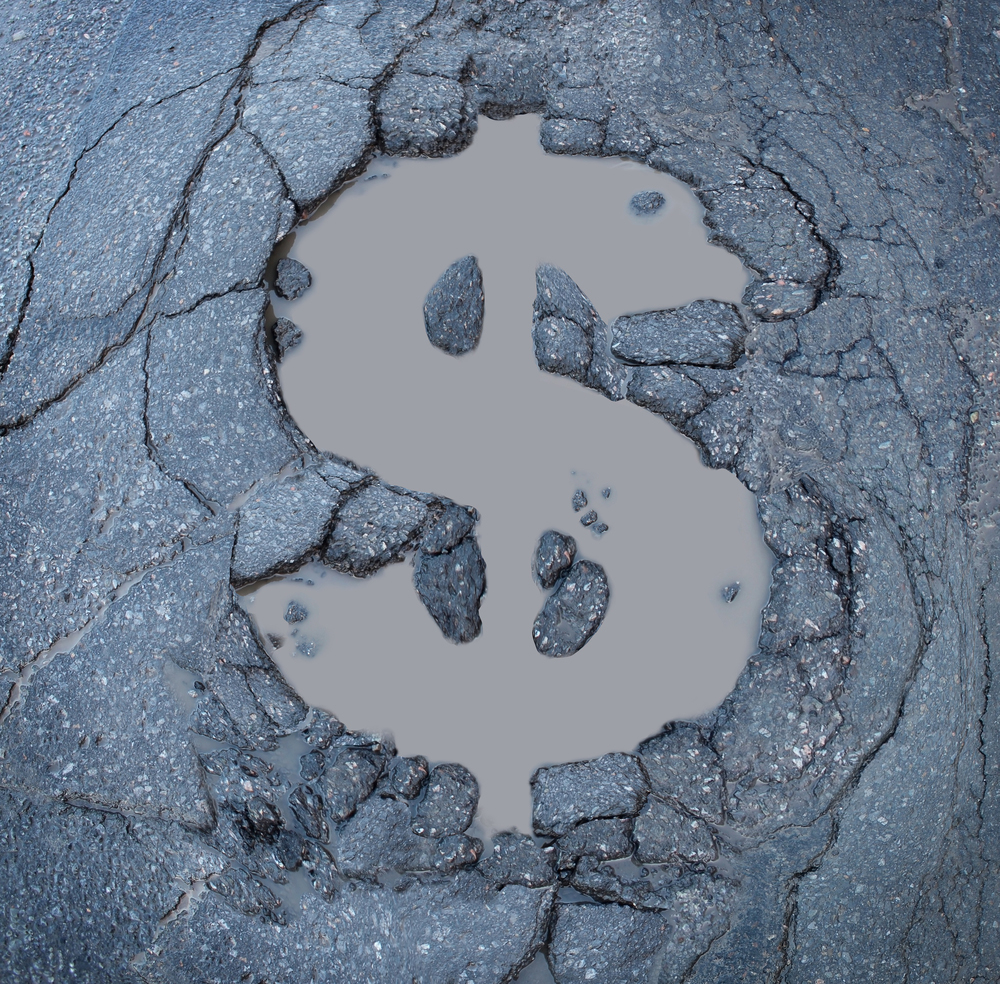Endorsement: Yes on Measure C
Our City Desperately Needs the Means to Bring Critical Infrastructure Up to Snuff

“Alligators” are what road engineers call street cracks. Santa Barbara, it turns out, is up to its eyeballs in alligators — as well as road scars and street acne. As we have always been told, the first rule of city government is this: Fix the potholes. That’s one big reason we’re endorsing Measure C, the one-cent sales-tax increase on this year’s ballot.
Of the city’s 245 miles of roads and streets, 64 percent are in poor or deteriorating condition. Just to maintain our streets at their current, terrible level, the city would have to spend $8 million a year. At present, it spends only $2 million. To bring our pavement safety up to a decent standard, the city would have to spend $17 million a year for five years. And the longer the delay, the more expensive the repairs. In the past five years, the price of asphalt alone has increased by 161 percent. So you can see why Santa Barbara drivers and bicyclists are swimming with alligators whenever they take to the road.
City bean counters estimate Measure C would generate $22 million a year to repair the city’s vast infrastructure needs — a list that also includes repairing sewer mains and parks. The annual cost of taking on these projects is $25 million. In other words, Measure C gets us most of the way there, but not quite all the way.
The single most expensive item that Measure C would help address is building a new police station. The city’s existing station was built in 1960, long before seismic safety was an engineering requirement. Back then, the department had a staff of 85. Today, 212 personnel are crowded into the same building. Just imagine if a major earthquake hits. That building becomes a deadly pancake. Realizing the existing dangers, the department’s communications infrastructure has been relocated elsewhere, but what about the police trapped in the collapsed building? Measure C would begin to fix that, as well as to modernize fire station headquarters. Should we not be willing to protect those whose duty it is to protect us?
If passed, Measure C will increase the sales tax within city limits from 7.75 percent to 8.75 percent — which would only put Santa Barbara’s sale taxes in the middle range compared to other cities. And if it’s any consolation, 40 percent of that increase will be paid for by out-of-town visitors.
Proponents of Measure C can justifiably brag they have support through the city, including the Association of Realtors, CAUSE, the police and firefighters’ unions, the League of Women Voters, the Chamber of Commerce, the Democratic Party, and all the candidates now running for citywide office, except one mayoral candidate, current Councilmember Frank Hotchkiss.
Hotchkiss has argued that the infrastructure sales tax should have been a special-purpose tax rather than a general tax. Funds generated by special-purpose taxes can only be used for the purposes designated by voters. In an ideal universe, perhaps, that makes some sense. But special-purpose taxes also require a two-thirds supermajority to be pass, rather than the 50 percent needed for a general-fund tax. In the 1999 election, when city voters were last asked to fund a new police station, it was as a special-purpose tax. Guess what? It couldn’t reach a supermajority threshold.
As a general-fund tax increase, the money generated by Measure C can go into the city’s general funds and be spent however the council decides. Critics, including the Republican Party, say that is why they oppose it. But back on Planet Earth — and in the City of Santa Barbara — the facts don’t support that criticism. In 2008, for example, when voters approved a general tax increase for utility users, tax supporters pledged that half the proceeds would be spent on road repairs. In the subsequent nine years, that pledge has been kept, assiduously and religiously. No cookie jar was raided; there has been no bait and switch.
Last but not least is the issue of local control. Measure C gives the City of Santa Barbara the resources needed to get the job done. Neither Washington nor Sacramento can take that away. This is not an idle worry. Five years ago, the State Legislature abolished redevelopment agencies throughout the state. The City of Santa Barbara lost $100 million. Today, the Republicans are gathering signatures for a California initiative that will lower gas taxes. That could cost Santa Barbara millions more. We need to protect local control.
Please vote for Measure C, or we’ll all be swimming with the alligators for a long time.



